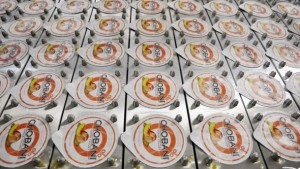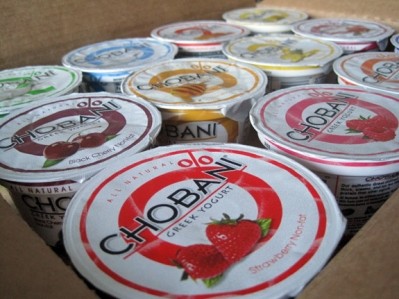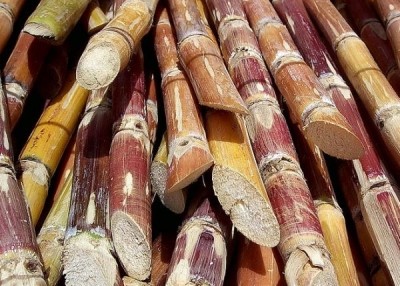Chobani: The FDA, not the courts, should judge whether term ‘evaporated cane juice’ is permitted on pack
![Chobani: 'There is a clear danger that inconsistent rulings [on evaporated cane juice labeling] will leave the food and beverage industry in a state of confusion'](/var/wrbm_gb_food_pharma/storage/images/_aliases/wrbm_large/publications/food-beverage-nutrition/dairyreporter.com/article/2013/09/09/chobani-the-fda-not-the-courts-should-judge-whether-term-evaporated-cane-juice-is-permitted-on-pack/2120431-2-eng-GB/Chobani-The-FDA-not-the-courts-should-judge-whether-term-evaporated-cane-juice-is-permitted-on-pack.jpg)
For those keen to get a sense of which way the tide is turning in the recent tsunami of lawsuits accusing everyone from Chobani to Trader Joe’s of concealing added sugar by calling it ‘evaporated cane juice’, the picture emerging from the courts is far from clear.
WhiteWave Foods recently agreed to settle one such case (Singer v. WWF Operating Co. No. 13-CV-21232) and replace the term ‘evaporated cane juice’ with ‘organic cane sugar’ or ‘cane sugar’.
However, several other high-profile lawsuits on ECJ are still proceeding through the courts, with judges in two near identical cases recently coming to very different conclusions.
Judge Rogers: The Court finds it is appropriate to defer to the authority and expertise of the FDA
In her July 12 order on a lawsuit filed vs Wholesoy &Co in California over ECJ, federal judge Yvonne Gonzalez Rogers said the FDA had primary jurisdiction in the case.
She added: “The Court finds it is appropriate to defer to the authority and expertise of the FDA to say what the appropriate rules should be with respect to evaporated cane juice. Rendering a decision based on what this court believes the FDA might eventually decide on either of these issues would usurp the FDA’s interpretive authority.”
Judge Koh: Court is not persuaded these claims should be dismissed or stayed on primary jurisdiction grounds
On the very same day, however, fellow federal judge Lucy Koh declined to apply the primary jurisdiction doctrine to ‘evaporated cane juice’ claims in a case v Chobani also filed in California (Kane et al v Chobani 5:2012cv02425).

In in her order granting in part and denying in part Chobani’s attempts to dismiss the lawsuit, Koh said: “As to Plaintiffs’ ECJ Claims generally, the Court is not persuaded that these claims should be dismissed or stayed on primary jurisdiction grounds.”
Chobani: Inconsistent rulings will leave the food and beverage industry in a state of confusion
But Chobani says that if individual judges are left to determine this matter, “there is a clear danger that inconsistent rulings will leave the food and beverage industry in a state of confusion”.
In a September 3 memorandum filed with the court, it added: “The evaporated cane juice issue is within the primary jurisdiction of FDA…FDA, not the Court, should interpret the technical, integrated set of FDA regulations at issue… “
FDA guidance specifically advises firms NOT to use term evaporated cane juice, but is non-binding
The plaintiffs in these cases note that the FDA has sent out multiple warning letters and produced draft guidance specifically telling firms not to use the term ‘evaporated cane juice’ because it is false and misleading and is not a juice.
Chobani said it was well aware of the guidance, but stressed that guidance is not legally binding, despite Judge Koh's description of it as “controlling” in her July 12 order.
“The FDA’s draft, non-binding guidance cannot be ‘controlling’ given 21 C.F.R. § 10.115 [where FDA explicitly states that draft guidance is not legally binding] and the unambiguous language in the guidance itself.
“In the recent Hood decision (referenced above) Judge Rogers gave this indisputable record its proper due, and reached the straightforward conclusion that it would be improper to short-circuit or hijack FDA’s setting of its own policy.”
So what happens next?

A hearing on the Chobani case is set for September 12, while a hearing in a similar case vs Trader Joe’s (Gitson et al v Trader Joe’s Company No. 13-cv-1333) is set for September 18.
What is evaporated cane juice?
Evaporated cane juice - which is made by extracting the juice from sugar cane and then evaporating or removing the water and first became available commercially in the 1990s - has a “lower impact on taste profiles and food coloration” than “common refined sugar”, according to WhiteWave Foods.
“Its widespread use is, unsurprisingly, most prevalent in healthy foods at the industry’s vanguard, stirring no controversy until this recent tsunami of lawsuits was filed.”




















